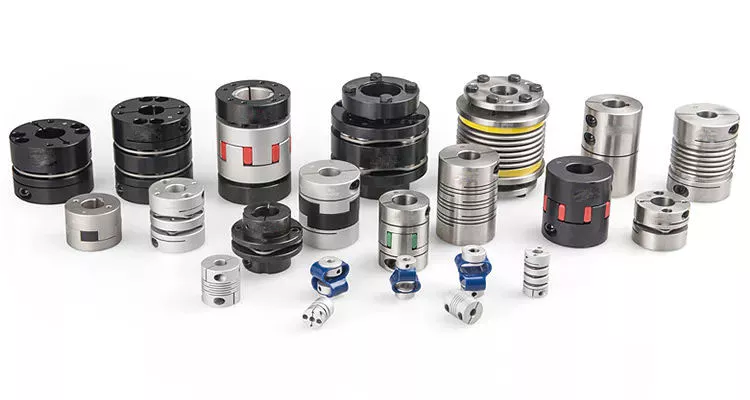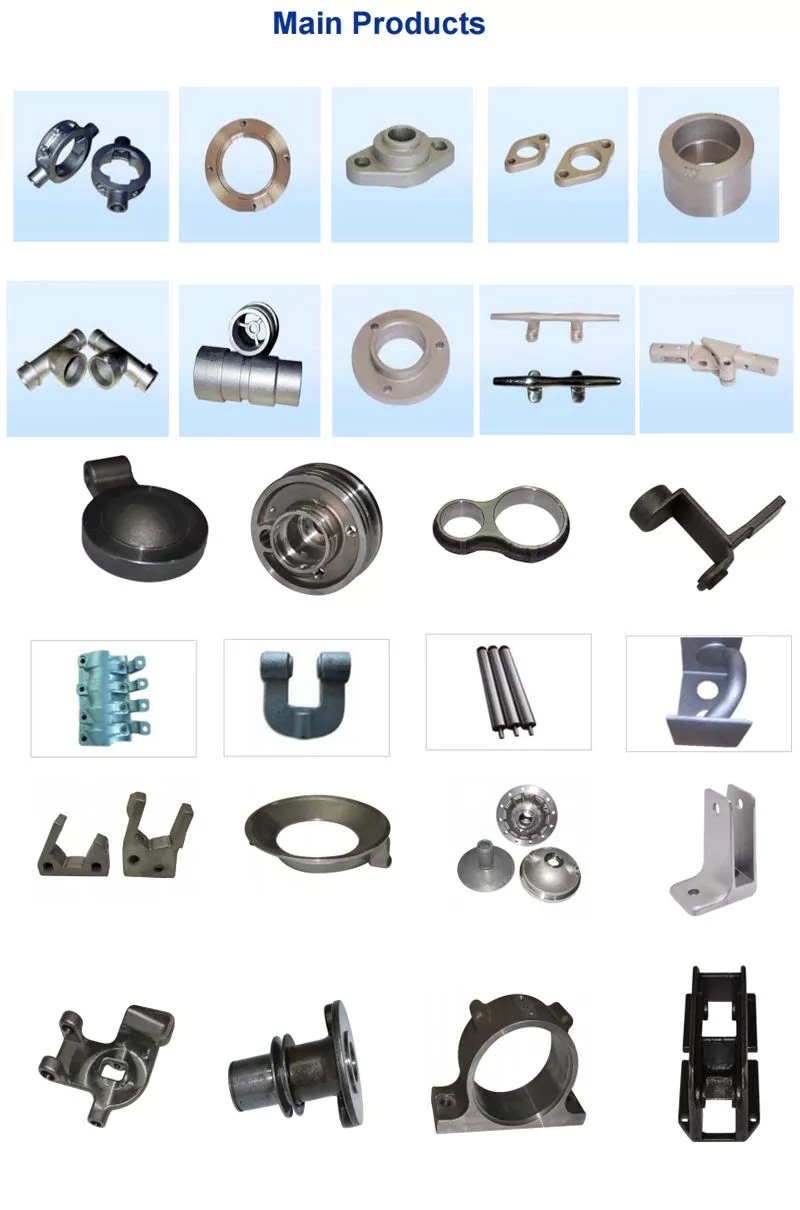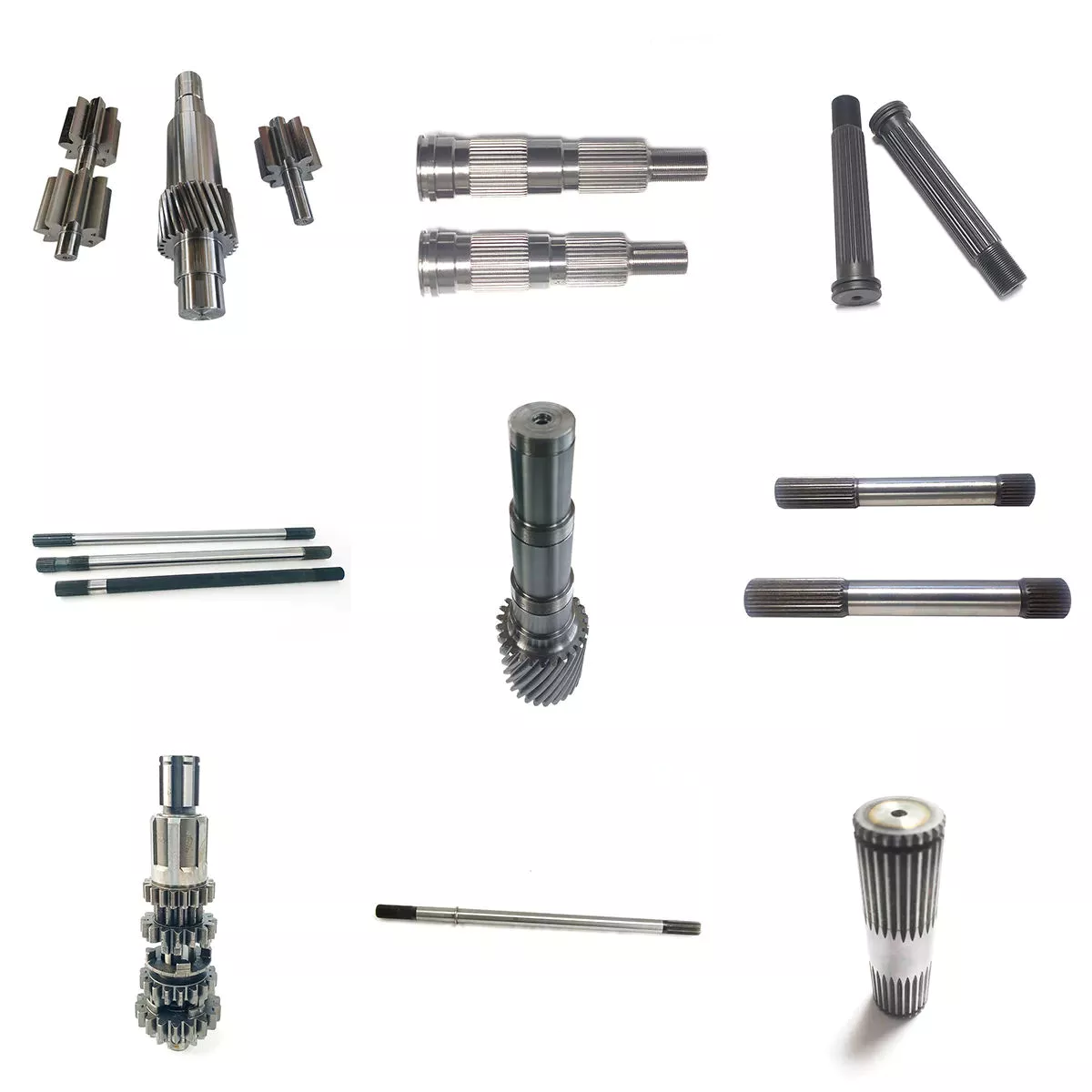Product Description
Factory Price Motorcycle Clutch Center Comp. YBR125
What Is A Motorcycle’s Clutch Made Of?
The clutch pack is made up of a stack of alternating steel plates and friction plates. The steel plates have tangs along their inner diameter that engage with the clutch’s inner hub, which is fixed to the end of the input shaft via splines. The friction plates have lugs along their outer edge that slot into the outer clutch basket. Springs (usually of the coil type but occasionally a diaphragm design) press the steel plates and the friction plates together, coupling the outer clutch basket to the inner hub, thereby transferring the crankshaft’s rotation to the input shaft.
Why so many plates? More plates mean a greater load capacity for the clutch. To achieve sufficient load capacity on a single-plate clutch (as on older BMWs and current Moto Guzzis), a very large disc must be used, and that takes up a lot of space. Meanwhile, the multi-plate clutch on a Hayabusa uses a stack of smaller-diameter plates and is easier to package. The 6 springs on a Hayabusa clutch only put about 400 pounds of pressure on the pack. That doesn’t sound like much given the tremendous power that clutch has to handle, but that 400 pounds are acting on all 19 clutch plates (10 friction plates and 9 steel plates, plus the hub and pressure-plate faces).
Marketbackground:
The replacement and repair of motorcycle clutch need to dismantle the engine box, which is complex and time-consuming.The existing maintenance market often has the phenomenon that the unqualified clutch can not be used or the service time is very short, and it is not durable.It is time-consuming and laborious for repeated disassembly and repair, which seriously affects the user experience and the work efficiency of the repair technician.
In order to avoid this kind of phenomenon, our company launched “Yonghan” brand upscale products!The qualified rate of products will reach “100 percent”, and the normal service life of each product will be extended by 30%! At the same time, the products have super high cost performance ratio, which makes users feel at ease and the repairmen feel comfortable.
Company Profile:
ZheJiang CZPT Machinery Processing Co., Ltd. was established in 2003 which is specialized in manufacturing motorcycle clutch assembly and spare parts with complete varieties and most reasonable price in China mainland.
Our company owns tens of equipment for processing and testing.The total area of workshop,warehouse and office building is about 10000 square meters.There are 200 staff in our company,including 20 professionals.The company’s main products are: GY6-50,GY6-90,GY6-125,C100,CY80,C90,C120,T100,T125,DK100A,DK100B,DX125,FY100,WIN100,YX100,DX110,DX125,982,983,GS125,CG125,CG150,CG200,CG250,CG260,CB125,CB150,CB200,CB250,CBF150,CBT125,CBT250,LF175,GF125,GN250,ATV250,ATV400,BAJAJ100,BAJAJ135,BANAJ180,TVSN35,TVSN45,YH162 for clutch assembly and parts. We have aboundant resources of motorcycle engine accessories and established a long-term cooperative relationship with famous domestic enterprises.
Our products have exported to Parkistan,Iran,Egypt,Turkey India,Burma,Malaysia,Korea,Indonesia, Vietnam,Laos,Cambodia,Thailand,The Philippines,The Dominican,Brazil,Xihu (West Lake) Dis.via etc., whitch covers more than 20 countries including south-east Asia,Middle- East,South America and Africa.
With the company’s development and strength of production capacity, we heartily hope that we can have long relations of cooperation with the vast number of peers and customers.We could providing products with high quality and services for customers adhering to the realistic,innovative,beneficial,and CZPT faith.
YH brand clutch advantage:
1.OEM service & competitive price
2.Reliable transfer torque
3.Steady force transmission
4.Long service life & wearable
5.On time delivery & better after-sales service
6.Positive customer feedback from oversea and domestic market
Other models available:
| REGI0N | MODEL | |||
| Brazil | CB300 | FAZER250/LANDER250 | TITAN95/99/CG83 > TODAY/CBX200/TITAN2000 | YBR125 ATE 2014 /XTZ125 ATE 2014 |
| YBR125/FACTOR 125 | TITAN150 2004/BROS150>2006/FAN150/FAN125>2009 | TITAN CRF230 | TITAN 150 05>14/ FAN 150/FAN 125>09/ | |
| CBX 250 TWISTER | CG 125/TITAN/FAN 83>08 | |||
| Indonesia | GRAND | LAGENDA | KARISMA | REVO |
| JUPZTER Z 18T | JUPZTER Z 24T | JUPZTER Z 20T | KAZE | |
| FORCE-1 | JUPITER Z | SMASH | LC135 JUPITER MX | |
| SHOGUN | SHOGUN-I | KAZE | SPARK | |
| JUPZTER Z 21T | CRYPTON | JUPITER Z1 VEGA ZR | ||
| Malaysia | LC135 | SRU115 | SRL115 F1 | SRL110 |
| LAGENDA | KARISMA | Y110/100 | C70-8 | |
| GN5 | ||||
| South America | CD100 | CG125 | CG125-5P | AX100 |
| CB125 | AT110 | BAJAJ135 | TITAN /STORM /BROSS /XLR/BX150 |
|
| YBR125 | SMASH | SMASH BIT | WAVE | |
| BM150 | V80 | YB100 | CG125N/M | |
| BAJAJ100 | TITAN 150 | RX150 | TITAN125 | |
| Africa | AX100 | CG125N/M | CG125O/M | YB100 |
| CD110 | CRYPTON | VEGAS | SPARK | |
| DX100 | ||||
| Thailand | WAVE110 | WAVE125 | Y100 | DREAM C100N |
| AX100 | GN5 | DREAM | ||
FAQ:
Q1. The motorcycle clutch,what is your terms of packing?
A: Generally, we pack our goods in neutral white boxes and brown cartons. If you have legally registered patent, we can pack the goods in your branded boxes after getting your authorization letters.
Q2. What is your terms of payment?
A: T/T 30% as deposit, and 70% before delivery. We’ll show you the photos of the products and packages before you pay the balance.
Q3. How about your delivery time?
A: Generally, it will take 5 working days after receiving your advanced payment. The specific delivery time depends on the items and the quantity of your order.
Q4. What is your sample policy?
A: We can supply the sample if we have ready parts in stock, but the customers have to pay the sample cost and the shipping cost.
Q5. Do you test all your goods before delivery?
A: Yes, we have 100% test before delivery.
Strandard exporting carton box packing:
Step1: Use plastic bag packing
Step2: Put it into a small carton box,one pcs 1 box
Step3: Put the small box into big carton box,one box 16pcs
Step4: Put the big carton box on the tray
Step5: Move into the ware house,waiting for deviery
Product Show:
Factory Show:
How to Calculate Stiffness, Centering Force, Wear and Fatigue Failure of Spline Couplings
There are various types of spline couplings. These couplings have several important properties. These properties are: Stiffness, Involute splines, Misalignment, Wear and fatigue failure. To understand how these characteristics relate to spline couplings, read this article. It will give you the necessary knowledge to determine which type of coupling best suits your needs. Keeping in mind that spline couplings are usually spherical in shape, they are made of steel.
Involute splines
An effective side interference condition minimizes gear misalignment. When 2 splines are coupled with no spline misalignment, the maximum tensile root stress shifts to the left by 5 mm. A linear lead variation, which results from multiple connections along the length of the spline contact, increases the effective clearance or interference by a given percentage. This type of misalignment is undesirable for coupling high-speed equipment.
Involute splines are often used in gearboxes. These splines transmit high torque, and are better able to distribute load among multiple teeth throughout the coupling circumference. The involute profile and lead errors are related to the spacing between spline teeth and keyways. For coupling applications, industry practices use splines with 25 to 50-percent of spline teeth engaged. This load distribution is more uniform than that of conventional single-key couplings.
To determine the optimal tooth engagement for an involved spline coupling, Xiangzhen Xue and colleagues used a computer model to simulate the stress applied to the splines. The results from this study showed that a “permissible” Ruiz parameter should be used in coupling. By predicting the amount of wear and tear on a crowned spline, the researchers could accurately predict how much damage the components will sustain during the coupling process.
There are several ways to determine the optimal pressure angle for an involute spline. Involute splines are commonly measured using a pressure angle of 30 degrees. Similar to gears, involute splines are typically tested through a measurement over pins. This involves inserting specific-sized wires between gear teeth and measuring the distance between them. This method can tell whether the gear has a proper tooth profile.
The spline system shown in Figure 1 illustrates a vibration model. This simulation allows the user to understand how involute splines are used in coupling. The vibration model shows 4 concentrated mass blocks that represent the prime mover, the internal spline, and the load. It is important to note that the meshing deformation function represents the forces acting on these 3 components.
Stiffness of coupling
The calculation of stiffness of a spline coupling involves the measurement of its tooth engagement. In the following, we analyze the stiffness of a spline coupling with various types of teeth using 2 different methods. Direct inversion and blockwise inversion both reduce CPU time for stiffness calculation. However, they require evaluation submatrices. Here, we discuss the differences between these 2 methods.
The analytical model for spline couplings is derived in the second section. In the third section, the calculation process is explained in detail. We then validate this model against the FE method. Finally, we discuss the influence of stiffness nonlinearity on the rotor dynamics. Finally, we discuss the advantages and disadvantages of each method. We present a simple yet effective method for estimating the lateral stiffness of spline couplings.
The numerical calculation of the spline coupling is based on the semi-analytical spline load distribution model. This method involves refined contact grids and updating the compliance matrix at each iteration. Hence, it consumes significant computational time. Further, it is difficult to apply this method to the dynamic analysis of a rotor. This method has its own limitations and should be used only when the spline coupling is fully investigated.
The meshing force is the force generated by a misaligned spline coupling. It is related to the spline thickness and the transmitting torque of the rotor. The meshing force is also related to the dynamic vibration displacement. The result obtained from the meshing force analysis is given in Figures 7, 8, and 9.
The analysis presented in this paper aims to investigate the stiffness of spline couplings with a misaligned spline. Although the results of previous studies were accurate, some issues remained. For example, the misalignment of the spline may cause contact damages. The aim of this article is to investigate the problems associated with misaligned spline couplings and propose an analytical approach for estimating the contact pressure in a spline connection. We also compare our results to those obtained by pure numerical approaches.
Misalignment
To determine the centering force, the effective pressure angle must be known. Using the effective pressure angle, the centering force is calculated based on the maximum axial and radial loads and updated Dudley misalignment factors. The centering force is the maximum axial force that can be transmitted by friction. Several published misalignment factors are also included in the calculation. A new method is presented in this paper that considers the cam effect in the normal force.
In this new method, the stiffness along the spline joint can be integrated to obtain a global stiffness that is applicable to torsional vibration analysis. The stiffness of bearings can also be calculated at given levels of misalignment, allowing for accurate estimation of bearing dimensions. It is advisable to check the stiffness of bearings at all times to ensure that they are properly sized and aligned.
A misalignment in a spline coupling can result in wear or even failure. This is caused by an incorrectly aligned pitch profile. This problem is often overlooked, as the teeth are in contact throughout the involute profile. This causes the load to not be evenly distributed along the contact line. Consequently, it is important to consider the effect of misalignment on the contact force on the teeth of the spline coupling.
The centre of the male spline in Figure 2 is superposed on the female spline. The alignment meshing distances are also identical. Hence, the meshing force curves will change according to the dynamic vibration displacement. It is necessary to know the parameters of a spline coupling before implementing it. In this paper, the model for misalignment is presented for spline couplings and the related parameters.
Using a self-made spline coupling test rig, the effects of misalignment on a spline coupling are studied. In contrast to the typical spline coupling, misalignment in a spline coupling causes fretting wear at a specific position on the tooth surface. This is a leading cause of failure in these types of couplings.
Wear and fatigue failure
The failure of a spline coupling due to wear and fatigue is determined by the first occurrence of tooth wear and shaft misalignment. Standard design methods do not account for wear damage and assess the fatigue life with big approximations. Experimental investigations have been conducted to assess wear and fatigue damage in spline couplings. The tests were conducted on a dedicated test rig and special device connected to a standard fatigue machine. The working parameters such as torque, misalignment angle, and axial distance have been varied in order to measure fatigue damage. Over dimensioning has also been assessed.
During fatigue and wear, mechanical sliding takes place between the external and internal splines and results in catastrophic failure. The lack of literature on the wear and fatigue of spline couplings in aero-engines may be due to the lack of data on the coupling’s application. Wear and fatigue failure in splines depends on a number of factors, including the material pair, geometry, and lubrication conditions.
The analysis of spline couplings shows that over-dimensioning is common and leads to different damages in the system. Some of the major damages are wear, fretting, corrosion, and teeth fatigue. Noise problems have also been observed in industrial settings. However, it is difficult to evaluate the contact behavior of spline couplings, and numerical simulations are often hampered by the use of specific codes and the boundary element method.
The failure of a spline gear coupling was caused by fatigue, and the fracture initiated at the bottom corner radius of the keyway. The keyway and splines had been overloaded beyond their yield strength, and significant yielding was observed in the spline gear teeth. A fracture ring of non-standard alloy steel exhibited a sharp corner radius, which was a significant stress raiser.
Several components were studied to determine their life span. These components include the spline shaft, the sealing bolt, and the graphite ring. Each of these components has its own set of design parameters. However, there are similarities in the distributions of these components. Wear and fatigue failure of spline couplings can be attributed to a combination of the 3 factors. A failure mode is often defined as a non-linear distribution of stresses and strains.

